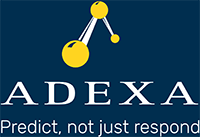Supply Chain Planning and Edge Computing
Edge computing is an open architecture that decentralizes computing and empowers processing of data locally by a device or sensor rather than being sent to a central system. Sensors are becoming more intelligent and have adequate computing power to detect and process data as they receive it and respond accordingly. In a way this is not that different from shock absorbers that detect bumps on the road and prevent the shock from reaching the passengers. Obviously not as intelligent as a sensor with embedded processor but nevertheless a local response.
When it comes to self-improving systems, the experiences at the local levels may have to be shared with other parts of the system when relevant. For example, what happens if a local computer is too slow to react or does not have enough capability to respond to an event? More powerful computers or other parts of the system need to be notified to respond immediately or to understand the trend so that preventive measures can be taken. Using our shock absorber analogy, if the car is constantly on a rough terrain then more powerful shock absorbers are needed.
Supply chain planning systems are constantly exposed to all kinds of data. Many require real-time response, and some can wait. A late delivery notice from supplier or a hurricane at a site may have an immediate impact that requires re-planning. On the other hand, a message from a supplier regarding late delivery 3 days later for a material that is not needed until a week later does not require much attention. In all these cases an “agent” or a sensor can receive the message, analyze it and then process it accordingly. However, there is more an agent can do. It can communicate the messages to relevant people or processes (other agents). For example, tell the “planning agent” there is a late delivery so that the latter can decide to replan or not. Secondly, the agent can learn from its experiences and respond better as well as make the whole system more effective by communicating its learning to other agents. If the supplier is late many times, a trend is detected and the entire system is informed that this supplier is not reliable and of course the lead-times for delivery need to be increased. To this end, we can constantly make better and more accurate plans as the system adapts itself to its environment.
At Adexa, we refer to these agents Adexa Genies©. There are many different agents for all kinds of business processes. They sense, respond and learn. They communicate with each other and their users their findings to constantly get better and self-improve. Examples of Genies are Inventory Optimizer, Supplier, Planner, Capacity Adjuster and Optimizer, Web Watcher, etc. To learn more about Adexa Genies© and the type of supply chain processes they support click Here.



